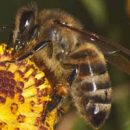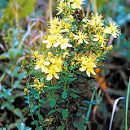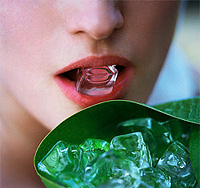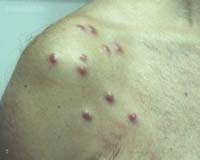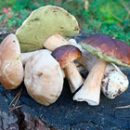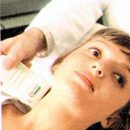Melissa, mint and soul men possess an unusually pleasant smell. The healing properties of these herbs have long been proven. Let's find out more about them!
Content
Easy soul
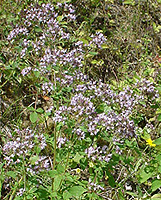 Originum Origanum Vulgare L. Lambiatae - Labiyatae
Originum Origanum Vulgare L. Lambiatae - Labiyatae
Ordinary Oiliard - Plant distributed in forest-steppe, steppe and in all other areas of the middle band of the European part of Russia. Growing out dry forests, meadows, shrubs, open places.
Ordinary Oils - Perennial, Herbaceous Plant Up to 70 cm, Height. Rhizome branched with pressing, thin roots. Stems upright, upward branches, tetrahedral, reddish, hairy. The leaves are opposite, sweet, oblong or egg-shaped with a solid plate. Flowers small, incorrect, purple, in the sumps. Fruit dry, consisting of four nuts. Flowers in July-August.
Drug raw materials is grass collected during flowering. The grass is dried in the air, in the shade or in the dryers.
Essential oil is the main active start of the plant and contains in its composition thymol, bicyclic sesquiterpene, free alcohols, geranilacetate and tannile substances.
Therapeutic properties of oregano
Therapeutic use of the oregano is based on the ability to have a soothing effect on the central nervous system, strengthen the secretion of digestive, bronchial and sweat glands, strengthen the intestinal peristalsis and have some anesthetic and deodorizing effect.
Use souls in the form of infusions and decoction externally and inside. Infusions and decoctions are prepared at the rate of 1: 10. Inside, they are prescribed to the soul at the intestinal atony, with a decrease in the secretion of the digestive glands, as well as the coat and expectorant. The soul is part of the breast and sweetest fees.
Externally for rinsing infusion from the grass of the souls are used with inflammation of the mucous membrane of the oral cavity, pharynx, oz; This marks a decrease in soreness, anti-inflammatory and deodorizing effect. The grass of the souls is used for aromatic baths.
Essential oil of the scenic, known under the name of the grinding oil, is used only externally. It is widely used in the perfume industry as part of some ointments, it is also used for fading soap, as it has a strong and pleasant smell.
In folk medicine, the oregano has long been known as a medicinal plant. It is widely used in various diseases.
Infusions of the herbs of souls, prepared at the rate of 30 g of leaves per 1 liter of boiling water, drink with a sluggish intestinal peristalsis, disturbed motor function of the stomach. Infusions and decoctions of the souls can also be prepared at the rate of 1: 10 and 1: 15 and take 1 tablespoon 3 times a day with insomnia, with depressed state, colds, diseases, sorcelas, gold. Outwardly, in the form of dry (powder from grass) and wet compresses, souls are used in gold, furunculaes, riots, various kinds of rashes. Warm decoction of herbs wash their head with headaches. After washing it is recommended to buton heads. The souls are used in the people in order to protect clothes from moths, while making things with herring.
Mint treatment-enjoyment
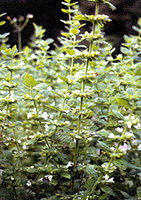 Insects are twisted on a warm summer day in search of nectar and pollen over flowers. Especially attracting their honeycomb plants from a family of licorious - oregano, sage, thyme, mint. Related to them and not inferior on the useful properties of Melissa Drug (Melissa Officinalis).
Insects are twisted on a warm summer day in search of nectar and pollen over flowers. Especially attracting their honeycomb plants from a family of licorious - oregano, sage, thyme, mint. Related to them and not inferior on the useful properties of Melissa Drug (Melissa Officinalis).
During the period of flowering, from July until the end of August, the bees are precipitated by its fragrant, gentle-blue flowers, assembled in a flock of 6-10 pieces. Their curl of a little resembles a shoe. Melissa gives fragrant and delicious honey, maybe it is also called a honey shoe, or a medical board. She loves to visit bees. From here and other names - bee leaf, pensioner-grass, row.
In the appearance of Melissa resembles mint. She has a tetrahedral, severe stem up to 80 cm high, contradicted leaves . At the beginning of the flowering of plants, they publish a strong smell resembling lemon (for which Melissa is also called lemon mint), at this time they are harvested.
Lemon mint people knew with deep antiquity. She was collected in bright deciduous forests in southern Europe, on the crubbed slopes of the mountains of Crimea and the Caucasus, where she grows naturally. Fresh lemon leaves are well combined with various vegetable and fish salads. However, add the grass to already ready-made dishes and not allow thermal processing at which its quality deteriorates.
Slovak cookies recommend trying melissa with grated cheese, milk, curd and meat products. It is added to pea, fish and mushroom soups. Salted cucumbers and tomatoes lemon mint attaches not only a kind of aroma, but also elasticity. It enters the recipe for the preparation of liqueurs and tinctures.
For a long time known therapeutic properties of Melissa Drug. Even in the Middle Ages, Avicenna used it as a means to improve the work of the heart and digestive organs. Warm tea with Melissa removes headache and dizziness, it has a slightly pulled effect, positively affects the vegetary-sized system.
Both aromatic and therapeutic advantages of Melissa are due to the presence of plants in tissues, especially in leaves, essential oils. Their includes citral and pyrannelol. The amount of essential oil in living plants varies from 0.1 to 0.5% depending on air humidity, increasing in dry sunny weather. Its more in cultural forms and plants at the beginning of flowering. In addition, resins, mucus, bitterness, tannyl substances, organic acids and vitamin C were found in the leaves. Therapeutic raw materials Melissa are collected in dry weather, cutting up the tops of shoots with flowers. They are binding to bundles and dried in the shade on draft.
Melissa on the household plot
Melissa Dosage - a thermal-loving plant and is better managed in the southern regions of Russia. In the northern regions, it is stable only with reliable snow cover. On the plot it is easier to breed rhizomes in spring.
Easily multiplied by Melissa and seeds, sleeping autumn in dry fruits nuts. They are cleaned and stored as usual. In the spring, they sow into the ground to a depth of 1-1.5 cm, sprinkled with peat or peat apartments and regularly watered until the first germs appeared. Usually on the 10-11st day, the seeds germinate. The average germination of fresh seeds is about 60%, after two or three years of storage, it is much lost. After picking seedlings need prience and watering. In the middle lane, Melissa is growing no more than 5 years, maybe in the south she lives longer.
During the summer, regular committees and loosening of the surface of the soil around the landings. Useful feeding cowboards or full mineral fertilizer. For the winter of plants are covered with a dry sheet or a peat layer about 3 cm.

